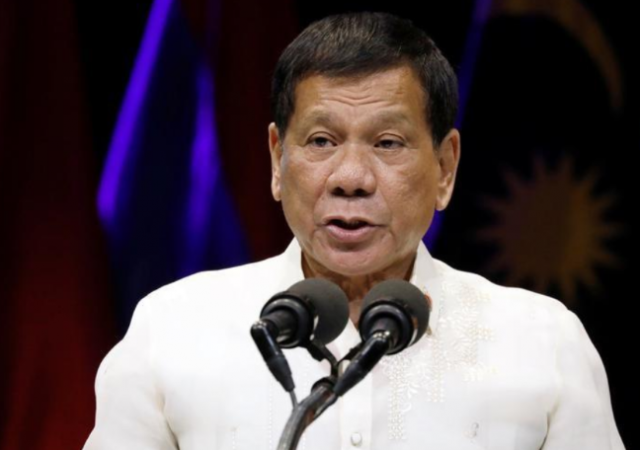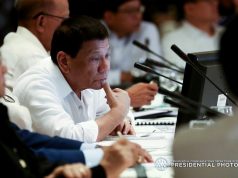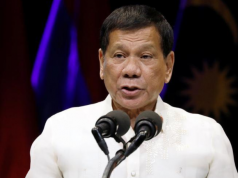MANILA, Philippines — His war on drugs campaign that “targeted the poor” and his administration’s “lack of basic economic reforms that continues to affect the poor” were among the reasons why President Rodrigo Duterte’s net satisfaction and trust ratings significantly dropped in the latest Social Weather Stations (SWS) survey, the left-leaning Bagong Alyansang Makabayan (Bayan) said Monday.
“Public opinion is turning against the fascist war on drugs and Duterte is well advised to end the daily killings. Duterte has also failed to uphold his pledge of ending labor contractualization. Wage remains low and there is still no genuine land reform in the countryside,” said Bayan secretary-general Renato Reyes in a statement.
Reyes noted that in the SWS Sept. 23 to 27, 2017 survey, Duterte’s “biggest decline” were in the “masa” or Class D and E, “the very same people bearing the brunt of extrajudicial killings in the drug war.”
The President’s net satisfaction rating among Class D fell by one grade from very good to good at +49 (68% satisfied, 18 percent dissatisfied, correctly rounded) in September, down by 17 points from +66 (78 percent satisfied, 12 percent dissatisfied) in June.
It also fell by one grade from very good to good in class E, at +35 (61% satisfied, 26 percent dissatisfied) in September, down by 32 points from +67 (80 percent satisfied, 13 percent dissatisfied) in June.
According to Bayan, the Duterte administration’s “neoliberal” economic program, which is no different from that of the Aquino administration, “Will doom the working people.”
As defined by Investopedia, neoliberalism pertains to a policy model of social studies and economics that transfers control of economic factors to the private sector from the public sector. It takes from the basic principles of neoclassical economics, suggesting that governments must limit subsidies, make reforms to tax law in order to expand the tax base, reduce deficit spending, limit protectionism, and open markets up to trade.
In his column written for The Guardian, British writer and political and environmental activist George Monbiot explained that neoliberalism “sees competition as the defining characteristic of human relations.”
“It redefines citizens as consumers, whose democratic choices are best exercised by buying and selling, a process that rewards merit and punishes inefficiency. It maintains that ‘the market’ delivers benefits that could never be achieved by planning,” he said.
Monbiot said that under a neoliberal policy, “attempts to limit competition are treated as inimical to liberty” while “the organisation of labour and collective bargaining by trade unions are portrayed as market distortions” and “inequality is recast as virtuous.”
He added that under the same policy model, “efforts to create a more equal society are both counterproductive and morally corrosive.”
Reyes said Duterte “should start seeing the writings on the wall.”
“No amount of social media spin or demagoguery can alter the very real hunger and anguish faced by millions of people. He has no one to blame but himself and his regime. He faces growing unrest as a result of his anti-people policies,” he said.






